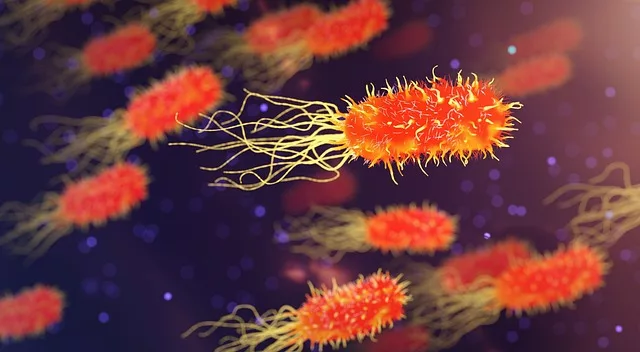Autophagy, a natural cellular process, plays a crucial role in maintaining cellular health and promoting longevity. Intermittent fasting has emerged as a powerful tool for activating autophagy, facilitating cellular cleansing, and promoting overall well-being. This article explores the concept of autophagy, its importance in cellular health, and how intermittent fasting can activate this process, providing numerous benefits for our bodies.
Understanding Autophagy
Autophagy is a cellular recycling and cleansing process in which cells break down and remove damaged proteins, organelles, and cellular debris. It is a vital mechanism that helps maintain cellular homeostasis, adapt to stress, and prevent the accumulation of toxic substances. The word “autophagy” itself means “self-eating,” as cells essentially consume their own components for recycling and renewal.
Role of Autophagy in Cellular Health
Autophagy has significant implications for overall health and well-being. By clearing out dysfunctional components and promoting cellular regeneration, autophagy:
- Supports Cellular Repair: Autophagy helps repair damaged proteins and organelles, ensuring cells function optimally. It plays a crucial role in removing misfolded proteins and preventing the formation of protein aggregates associated with neurodegenerative diseases.
- Enhances Energy Metabolism: Autophagy can supply the necessary building blocks and energy substrates to maintain cellular energy balance during nutrient scarcity. This process becomes particularly relevant during periods of fasting or calorie restriction.
- Boosts Immune Function: Autophagy is involved in the elimination of intracellular pathogens, such as viruses and bacteria. It helps cells clear out invading microorganisms and enhances immune responses.
- Delays Aging Processes: By reducing the accumulation of damaged components, autophagy can slow down the aging process and potentially extend lifespan. It promotes cellular rejuvenation and enhances the body’s ability to cope with age-related stressors.
Intermittent Fasting and Autophagy Activation
Intermittent fasting is a powerful strategy for activating autophagy and reaping its benefits. By imposing periods of fasting or calorie restriction, intermittent fasting prompts the body to undergo adaptive responses, including the upregulation of autophagy. Here’s how intermittent fasting activates autophagy:
- Triggering Cellular Stress: During fasting periods, cells experience a mild stress response, triggering adaptive mechanisms. This stress activates various signaling pathways, including those involved in autophagy induction.
- Hormonal Changes: Intermittent fasting influences hormone levels, such as increased glucagon and decreased insulin. These hormonal changes promote autophagy activation.
- Energy Depletion and AMPK Activation: Caloric restriction during fasting periods leads to a decrease in available energy. This activates AMP-activated protein kinase (AMPK), a key regulator of cellular energy homeostasis, which subsequently stimulates autophagy.
- Nutrient Sensing: By restricting nutrient availability, intermittent fasting modulates nutrient-sensing pathways, such as mammalian target of rapamycin (mTOR). mTOR inhibition is associated with autophagy induction.
Benefits of Intermittent Fasting-Induced Autophagy
Activating autophagy through intermittent fasting can provide numerous health benefits, including:
- Cellular Cleansing and Renewal: Autophagy clears out damaged proteins, organelles, and cellular debris, promoting cellular renewal and reducing the risk of age-related diseases.
- Enhanced Brain Health: Autophagy plays a crucial role in maintaining brain health by removing toxic protein aggregates associated with neurodegenerative diseases like Alzheimer’s and Parkinson’s.
- Improved Metabolic Health: Autophagy activation can support healthy metabolism by optimizing cellular energy utilization, improving insulin sensitivity, and reducing inflammation.
- Longevity Promotion: The activation of autophagy through intermittent fasting has been linked to potential longevity benefits by delaying aging processes and increasing cellular resilience.
Autophagy, the cellular self-cleansing process, plays a vital role in maintaining cellular health, promoting longevity, and preventing age-related diseases. Intermittent fasting can help us unlock the benefits of autophagy, supporting overall health and well-being.
Learn more about intermittent fasting by exploring some of the articles linked below.
Image by Arek Socha from Pixabay
Fasting
-

How To Manage Arthritis with Intermittent Fasting?
Intermittent fasting (IF), an eating pattern that cycles between periods of eating and fasting, has gained significant attention for its potential health benefits. Among its many touted advantages, some studies suggest that intermittent fasting could offer benefits for individuals with arthritis. In this article, we will delve into the research surrounding intermittent fasting and its…
-

Which Intermittent Fasting Method Is the Best
-

How to Apply Intermittent Fasting to Reverse Prediabetes
-

Choose the Best Intermittent Fasting Approach for You
-

What is Autophagy and How to Activate it with Intermittent Fasting
-

Exploring the Relationship Between Intermittent Fasting and Sleep Quality
-

Intermittent Fasting: Mistakes to avoid For Quick Results








Leave a Reply